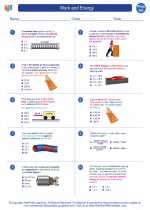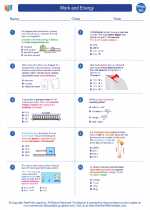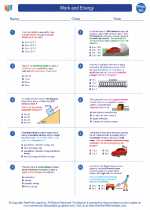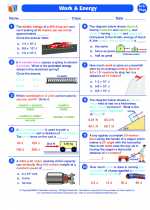Single Replacement Reaction
A single replacement reaction, also known as a single displacement reaction, is a type of chemical reaction in which one element replaces another in a compound. This reaction occurs when a more reactive element displaces a less reactive element from its compound.
General Form:
A + BC → AC + B
Key Concepts:
- Reactivity Series: The reactivity series is a list of elements arranged in order of their reactivity. This series helps predict whether a single replacement reaction will occur.
- Activity Series: The activity series is a list of metals and hydrogen arranged in order of their reactivity. It helps determine whether a metal can displace another metal from a compound.
- Balancing Equations: Balancing the chemical equation is crucial to ensure that the law of conservation of mass is obeyed. This involves adjusting the coefficients of the reactants and products.
- Types of Single Replacement Reactions: There are different types of single replacement reactions, including metal displacement, non-metal displacement, and hydrogen displacement.
Example:
Consider the reaction between zinc metal (Zn) and hydrochloric acid (HCl): Zn + 2HCl → ZnCl2 + H2
Study Tips:
- Memorize the reactivity series and activity series to identify which elements can displace others in a compound.
- Practice balancing chemical equations to master the skill of writing and balancing single replacement reactions.
- Understand the properties of different elements and their likelihood to undergo single replacement reactions based on their position in the reactivity series.
- Work through plenty of examples to reinforce your understanding of single replacement reactions.
Summary:
Single replacement reactions involve the replacement of one element in a compound by another more reactive element. Understanding the reactivity series, balancing equations, and types of single replacement reactions is essential for mastering this topic.
[Single Replacement Reaction] Related Worksheets and Study Guides:
.◂Physics Worksheets and Study Guides High School. Work and Energy
Worksheet/Answer key Work and Energy
Work and Energy  Worksheet/Answer key
Worksheet/Answer key Work and Energy
Work and Energy  Worksheet/Answer key
Worksheet/Answer key Work and Energy
Work and Energy  Worksheet/Answer key
Worksheet/Answer key Work and Energy
Work and Energy 

 Worksheet/Answer key
Worksheet/Answer key
 Worksheet/Answer key
Worksheet/Answer key
 Worksheet/Answer key
Worksheet/Answer key

The resources above cover the following skills:
PHYSICAL SCIENCE (NGSS)
Energy
Students who demonstrate understanding can:
Develop and use models to illustrate that energy at the macroscopic scale can be accounted for as either motions of particles or energy stored in fields.